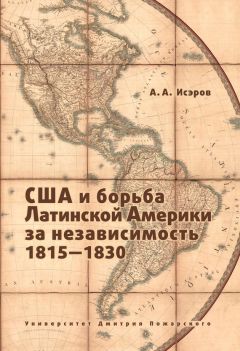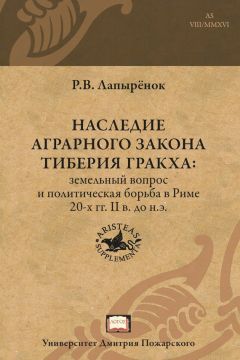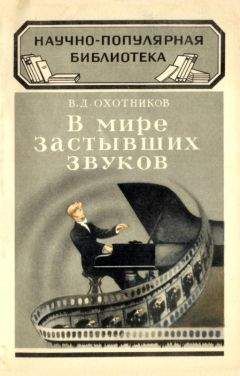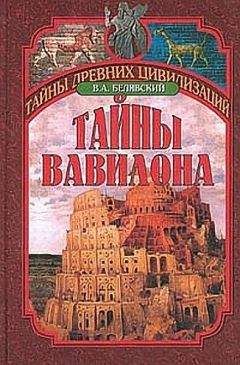Брендан Симмс - Европа. Борьба за господство
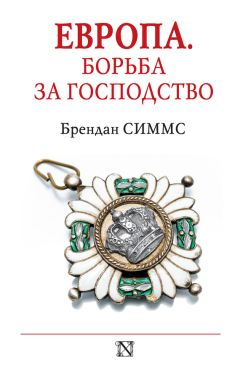
Все авторские права соблюдены. Напишите нам, если Вы не согласны.
Описание книги "Европа. Борьба за господство"
Описание и краткое содержание "Европа. Борьба за господство" читать бесплатно онлайн.
Европа, на землях которой шла многовековая борьба за господство…
Борьба оружия и дипломатии, культурного, религиозного, политического и экономического влияния…
Какие же страны одерживали верх в этой борьбе?
А какие были отброшены назад?
Каким государствам удалось подняться после разрушительных поражений?
А какие так и остались на обочине истории?
На эти и другие вопросы отвечает в своей книге Брендан Симмс – известный британский историк, профессор, директор Центра международных исследований Кембриджского университета.
353
Robin A. Fabel, Colonial challenges. Britons, Native Americans and Caribs, 1759–1775 (Gainesville, 2000), pp. 158–60.
354
George P. Anderson, ‘Pascal Paoli: an inspiration to the Sons of Liberty’, Publications of the Colonial Society of Massachusetts, 26 (1924–6), pp. 180–210, especially pp. 189–91 and 202–3 (for quotations).
355
Richard B. Sheridan, ‘The British credit crisis of 1772 and the American colonies’, Journal of Economic History, 20 (1960), pp. 161–86.
356
John Adams to Mercy Warren, 20 July 1807, in Collections of the Massachusetts Historical Society, Fifth Series, IV (1878), p. 338. I thank Daniel Robinson for drawing this letter to my attention.
357
Richard Middleton, The War of American Independence, 1775–1783 (Harlow, 2012), pp. 15–36.
358
Hamish Scott, British foreign policy in the age of the American Revolution (Oxford, 1990), and Donald Stoker, Kenneth J. Hagan and Michael T. McMaster (eds.), Strategy in the American War of Independence. A global approach (London and New York, 2010).
359
Cited in Robert Rhodes Crout, ‘In search of a “just and lasting peace”: the treaty of 1783, Louis XVI, Vergennes, and the regeneration of the realm’, International History Review, 5, 3 (1983), p. 374.
360
Quoted in Kagan, Dangerous nation, p. 47.
361
Jonathan R. Dull, A diplomatic history of the American Revolution (New Haven and London, 1985), p. 47.
362
David M. Fitzsimmons, ‘Tom Paine’s new world order: idealistic internationalism in the ideology of early American foreign relations’, Diplomatic History, 19 (1995), pp. 569–82 (quotations p. 579).
363
Mlada Bukovansky, Legitimacy and power politics. The American and French Revolutions in international political culture (Princeton and Oxford, 2002), pp. 110–64 and 216–20, and Walter McDougall, Promised land, crusader state. The American encounter with the world since 1776 (New York, 1997).
364
Ben Baack, ‘Forging a nation state: the Continental Congress and the financing of the War of American Independence’, Economic History Review, 54, 4 (2001), pp. 639–56, especially pp. 639–40.
365
Quoted in Munro Price, Preserving the monarchy. The Comté de Vergennes, 1774–1787 (Cambridge, 1995), p. 22.
366
Sandwich remarks to cabinet, 19 January 1781, Queens’ House, in the presence of the king, in John G. R. Barnes and J. J. Owen (eds.), The Private Papers of John, Earl of Sandwich, 1771–1782 (London, 1932–8), Vol. 4, p. 24.
367
Парусные линейный корабли имели экипаж до 800 человек и вооружение до 130 орудий и предназначались для боевых действий в линейном боевом порядке, когда все корабли были обращены одним бортом к противнику. Примеч. ред.
368
Stephen Conway, The British Isles and the War of American Independence (Oxford, 2000), pp. 16, 350 and 17.
369
Cited in Scott, Emergence of the eastern powers, p. 1.
370
Quotations in Crout, ‘A “just and lasting peace”’, p. 398, and Maya Jasanoff, Liberty’s exiles. American loyalists in the revolutionary world (New York, 2011), p. 87.
371
Quoted in Stone, Genesis of the French Revolution, p. 142.
372
Quoted in Claus Scharf, ‘“La Princesse de Zerbst Catherinisée”. Deutschlandbild und Deutschlandpolitik Katharinas II.’, in Dagmar Herrmann (ed.), Deutsche und Deutschland aus russischer Sicht. 18. Jahrhundert: Aufklärung (Munich, 1992), p. 320.
373
Quoted in Jeremy Black, The rise of the European powers (London, 1990), p. 130.
374
Quoted in Brendan Simms, The struggle for mastery in Germany, 1779–1850 (Basingstoke, 1998), p. 45.
375
Vincent T. Harlow, The founding of the second British empire, 2 vols. (London, 1952–64), and C. A. Bayly, Imperial meridian. The British Empire and the world, 1780–1830 (London, 1989).
376
Quoted in Jeremy Black, British foreign policy in an age of revolutions, 1783–1793 (Cambridge, 1994), p. 13.
377
P. G. M. Dickson, ‘Count Karl von Zinzendorf’s “new accountancy”: the structure of Austrian government finance in peace and war, 1781–1791’, International History Review, 29, 1 (2007), pp. 22–56.
378
Ernst Wangermann, Die Waffen der Publizität. Zum Funktionswandel der politischen Literatur unter Joseph 11. (Vienna, 2004), pp. 168–84.
379
Karl Härter, ‘Möglichkeiten und Grenzen der Reichspolitik Russlands als Garantiemacht des Teschener Friedens (1778–1803)’, in Claus Scharf (ed.), Katharina II., Rußland und Europa. Beiträge zur internationalen Forschung. Veröffentlichungen des Instituts für Europäische Geschichte, Supplement 45 (Mainz, 2001), pp. 133–81.
380
Hugh Ragsdale, ‘Evaluating the traditions of Russian aggression: Catherine II and the Greek Project’, Slavonic and East European Review, 66 (1988), pp. 91–117, especially pp. 95–6.
381
Quoted in Virginia H. Aksan, Ottoman wars 1700–1870. An empire besieged (Harlow, 2007), p. 161.
382
Quoted in Karl A. Roider, Austria’s Eastern Question, 1700–1790 (Princeton, 1982), p. 180.
383
Alexander Hamilton, Federalist Paper no. 34, 5.1.1788, in J. R. Pole (ed.), The Federalist. Alexander Hamilton, James Madison, John Jay (Indianapolis and Cambridge, 2005), p. 178.
384
James R. Sofka, ‘The Jeffersonian idea of national security. Commerce, the Atlantic balance of power, and the Barbary War, 1786–1805’, Diplomatic History, 21 (1997), pp. 519–44, especially pp. 519, 522 and 527.
385
Quoted in Doris A. Graber, Public opinion, the president, and foreign policy. Four case studies from the formative years (New York, Chicago etc., 1968), p. 133.
386
Deborah Allen, ‘Acquiring “knowledge of our own continent”: geopolitics, science, and Jeffersonian geography, 1783–1803’, Journal of American Studies, 40 (2006), pp. 205–32 (Jay is quoted on p. 216). For the importance of the west see François FÜrstenberg, ‘The significance of the trans – Appalachian Frontier in Atlantic history, c.1754–1815’, American Historical Review, 113 (2008), pp. 647–77.
387
Alexander Hamilton, Federalist Paper no. 25, 21.12.1787, in Pole (ed.), Federalist, p. 133.
388
Federalist Paper no. 7, 17.11.1787, in Pole (ed.), Federalist, pp. 28–9.
389
О страхе колонистов перед расколом и повторением опыта итальянских городов-государств: David C. Hendrickson, Peace pact. The lost world of the American founding (Lawrence, Kan., 2003), p. 63.
390
Federalist Paper no. 8, 20.11.1787, in Pole (ed.), Federalist, p. 37.
391
Federalist Paper no. 19, 8.12.1787, in Pole (ed.), Federalist, pp. 99–102. For the impact of the Polish partition on the constitutional convention see Frederick W. Marks, Independence on trial. Foreign affairs and the making of the constitution (Baton Rouge, 1973), pp. 3–51, especially p. 33.
392
Federalist Paper no. 5, 10.11.1787, in Pole (ed.), Federalist, pp. 17–18.
393
George William van Cleve, A slaveholders’ union. Slavery, politics, and the constitution in the early American Republic (Chicago and London, 2010), p. 9.
394
Значимость международного соперничества для конституции: Michael Schwarz, ‘The great divergence reconsidered. Hamilton, Madison, and U. S. – British relations, 1783–89’, Journal of the Early Republic, 27 (2007), pp. 407–36, especially pp. 419–21.
395
Quoted in Doyle, Aristocracy and its enemies, p. 99. See also Markus Hünemörder, The Society of the Cincinnati. Conspiracy and distrust in early America (New York and Oxford, 2006).
396
Roy Weatherup, ‘Standing armies and armed citizens: an historical analysis of the Second Amendment’, Hastings Constitutional Law Quarterly, 2 (1975), pp. 961–1001, especially p. 995.
397
Wolfgang Burgdorf, Reichskonstitution und Nation. Verfassungsreformprojekte für das Heilige Römische Reich Deutscher Nation im politischen Schrifttum von 1648 bis 1806 (Mainz, 1998), pp. 328–35.
398
Munro Price, ‘The Dutch Affair and the fall of the ancien régime, 1784–1787’, Historical Journal, 38 (1995), pp. 875–905 (quotation p. 904).
399
Своим представлением о взаимосвязи дипломатического упадка ancien régime и началом французской революции я в немалой степени обязан работе: Gary J. Savage, ‘The French Revolution and the secret du roi. Diplomatic tradition, foreign policy and political culture in later eighteenth-century France (1756–1792)’ (unpublished Ph.D. dissertation, University of Cambridge, 2005).
400
Thomas Kaiser, ‘Who’s afraid of Marie-Antoinette? Diplomacy, Austrophobia and the Queen’, French History, 14, 3 (2000), pp. 241–71.
401
Quoted in Price, Vergennes, p. 234.
402
Montmorin is quoted in Jeremy J. Whiteman, Reform, revolution and French global policy, 1787–1791 (Aldershot, 2003), p. 103.
403
Munro Price, ‘The court nobility and the origins of the French Revolution’, in H. Scott and B. Simms (eds.), Cultures of power in Europe during the Long Eighteenth Century (Cambridge, 2007), pp. 278–9.
404
Chapter 2 of the Cahiers, quoted in John Hall Stewart (ed.), A documentary survey of the French Revolution (New York, 1951), p. 59.
405
Quotation in Stone, Genesis of the French Revolution, p. 207.
406
David A. Bell, The cult of the nation in France. Inventing nationalism, 1680–1800 (Cambridge, Mass., and London, 2001), pp. 14–17 and passim (Sieyes is quoted on p. 14).
407
Quoted in Michael Hochedlinger, ‘Who’s afraid of the French Revolution? Austrian foreign policy and the European crisis, 1787–1797’, German History, 21, 3 (2003), pp. 293–318 (quotation p. 303).
408
Reflections on the Revolution in France, in Paul Langford (ed.), The writings and speeches of Edmund Burke. Vol. VIII: The French Revolution, 1790–1794 (Oxford, 1989), pp. 131 and 60.
409
Richard Bourke, ‘Edmund Burke and international conflict’, in Ian Hall and Lisa Hill (eds.), British international thinkers from Hobbes to Namier (Basingstoke, 2009), pp. 91–116.
410
P. J. Marshall and John A. Woods (eds.), The correspondence of Edmund Burke. Vol. VII: January 1792–August 1794 (Cambridge, 1968), p. 383; R. B. McDowell (ed.), The writings and speeches of Edmund Burke. Vol. IX: I The Revolutionary War. II Ireland (Oxford, 1991), pp. 195 and 250 (vicinage); Brendan Simms, ‘“A false principle in the Law of Nations”. Burke, state sovereignty, [German] liberty, and intervention in the age of Westphalia’, in Brendan Simms and D. J. B. Trim (eds.), Humanitarian intervention. A history (Cambridge, 2011), p. 110.
411
Quoted in T. C. W. Blanning, The origins of the French Revolutionary Wars (Harlow, 1986), p. 132.
412
Horst Möller, ‘Primat der Aussenpolitik: Preussen und die französische Revolution, 1789–1795’, in Jürgen Voss (ed.), Deutschland und die französische Revolution (Munich, 1983), pp. 65–81.
413
Adam Hochschild, Bury the chains. The first international human rights movement (London and New York, 2005), p. 137, and William Hague, William Wilberforce. The life of the great anti-slave trade campaigner (London, 2007), pp. 149–50.
414
Цветному населению (фр.). Примеч. ред.
415
Jeremy Popkin, You are all free. The Haitian Revolution and the abolition of slavery (Cambridge, 2010), p. 276. See also John Thornton, ‘“I am the subject of the King of Congo”: African political ideology and the Haitian Revolution’, Journal of World History, 4, 2 (1993), pp. 181–214, especially p. 183.
416
Историческое герцогство в долине Рейна, по обоим берегам реки Рур. Примеч. ред.
417
Michael Hochedlinger, ‘“La cause de tous les maux de la France”. Die “Austrophobie” im revolutionären Frankreich und der Sturz des Königtums, 1789–1792’, Francia, 24 (1997), pp. 73–120.
418
Eckhard Buddruss, Die französische Deutschlandpolitik, 1756–1789 (Mainz, 1995).
419
Quotations in Savage, ‘The French Revolution and the secret du roi’, p. 211.
420
Sidney Seymour Biro, The German policy of Revolutionary France. A study in French diplomacy during the War of the First Coalition, 1792–1797, 2 vols. (Cambridge, Mass., 1957).
421
The Padua Circular and Declaration of Pillnitz are printed in Hall Stewart (ed.), Documentary survey, pp. 221–4.
Подписывайтесь на наши страницы в социальных сетях.
Будьте в курсе последних книжных новинок, комментируйте, обсуждайте. Мы ждём Вас!
Похожие книги на "Европа. Борьба за господство"
Книги похожие на "Европа. Борьба за господство" читать онлайн или скачать бесплатно полные версии.
Мы рекомендуем Вам зарегистрироваться либо войти на сайт под своим именем.
Отзывы о "Брендан Симмс - Европа. Борьба за господство"
Отзывы читателей о книге "Европа. Борьба за господство", комментарии и мнения людей о произведении.








